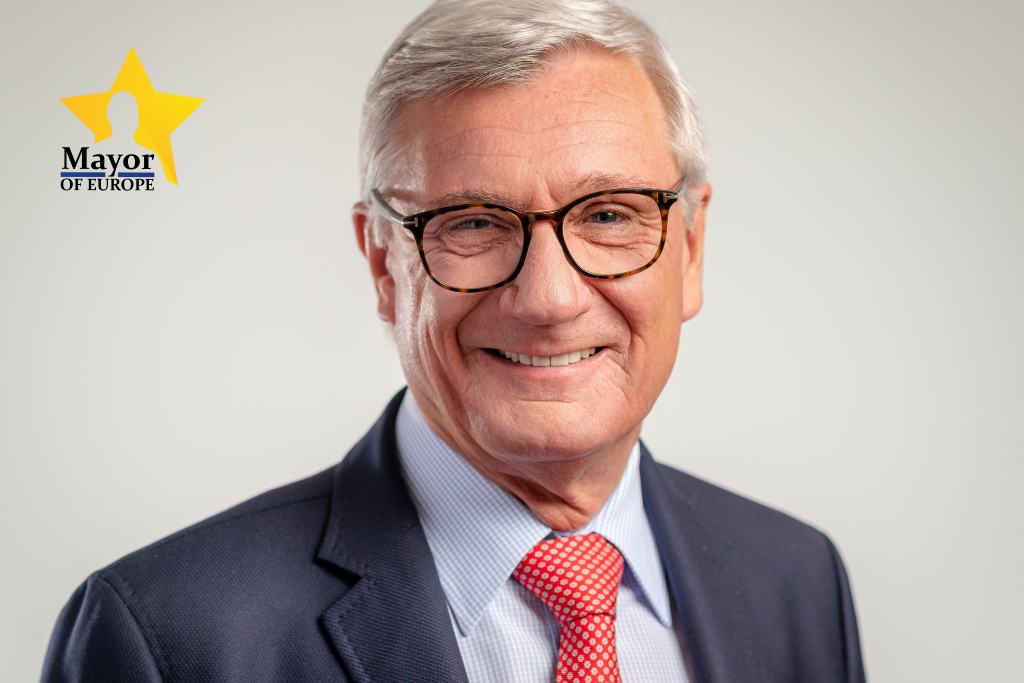Thessaloniki gets ready for its metro launch in November
The underground rapid transit lines have been under construction for almost two decades due to various project delays
 TheMayor.EU logo
TheMayor.EU logo 





 Harald Preuner, Mayor of Salzburg, Austria. Image: Stadt Salzburg
Harald Preuner, Mayor of Salzburg, Austria. Image: Stadt Salzburg
Salzburg is not considered
the "Rome of the North" for nothing
Harald Preuner has been involved in local politics in Salzburg since 1999 when he joined the city’s District Council. After that, he quickly ascended to be the Chairman of the District Office in the Economics Chamber of Salzburg in 2001, and in 2004 he became the deputy mayor of the city.
In 2017, he took over as mayor of Salzburg, being re-elected in 2019.
It would be presumptuous to say that the city has undergone a serious change only because of my taking office in 2017. But drastic events were the two years of the Covid-19 pandemic and the war in Ukraine which started on 24 February 2022.
One of them is certainly that Salzburg came through the Covid-19 pandemic reasonably well. We managed to maintain cohesion in our city despite many challenges.
We are aware that Salzburg has a special cultural mission. Therefore, we strive to strengthen the cultural competence of the city.
There is no particular secret here. It is rather the importance of Salzburg's location at the crossroads of important axes between North and South and East and West. Thus, many cultural circles intersect here, which makes this city so special. Salzburg is not considered the "Rome of the North" for nothing.
Salzburg is a Capital of Culture regardless of whether it officially seeks such status. Year in and year out, we focus on the key theme of culture. There is no need to apply for the status of a Capital of Culture to strengthen what we already have and do. I think that other cities should be given precedence here.
The pandemic was indeed a setback that hit Salzburg massively, especially in tourism. However, through appropriate support and working time models, the local government ensured that the sector could weather the storm. The city was also able to make its contribution and help by providing targeted funding as it is economically well-positioned.
It is true that Salzburg has a heavy emphasis on the classical sector. However, we strive to promote initiatives from the independent cultural scene and contemporary initiatives in addition to this. Specifically, instead of the postponed "Rauchmühle" project, a project on Bachstraße (in the eastern part of the city) is currently being implemented, which will create additional rehearsal and event space for the independent scene.
This will provide a significantly increased, improved, yet cost-effective supply of space by the city in partnership with a private developer.
Salzburg was already massively affected by the wave of migration in 2015 and 2016, which swept over our city after the German chancellor (Angela Merkel) said "We can do it". Initially, that pushed us to the limits of what was possible. However, gradually the situation came under control and it gave us the opportunity to mobilize and test our crisis mechanisms.
This experience helped us very decisively during the pandemic as well and continues to do so in the integration of displaced persons from Ukraine. In general, there will be certain demands on the housing and labour markets. However, we are confident that we will be able to cope with this well.
Author: Denis Balgaranov
More from Salzburg: